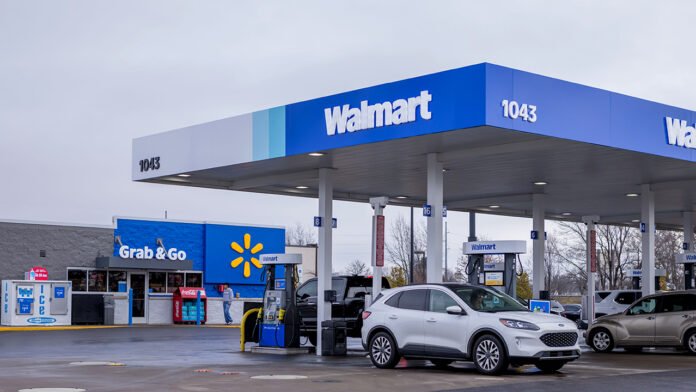Retailers Expand Fuel Services as the electric vehicle transition progresses slower than expected. Major U.S. chains like Walmart, Costco, and Dollar General are doubling down on gas station investments. This expansion signals a strong belief that fuel demand will remain high for years.
Walmart plans to open over 45 new fuel stations across the U.S. this year. With these additions, the company will operate more than 450 gas and convenience sites in 34 states. These stations offer low fuel prices and exclusive discounts for Walmart+ members. They also provide grab-and-go items, making them a convenient one-stop shop.
Costco is also expanding its fuel services. Most of its fuel stations now stay open until 10 p.m., extending operations beyond store hours. CEO Rob Vachris shared this update in a recent earnings call. Some stations even open earlier to meet growing demand.
Dollar General, while newer to the fuel market, is steadily expanding. It started with a test location in Alabama. Now, it runs over 40 fuel stations, mainly in southern states. The company sees potential in adding fuel to its existing stores.
Experts believe the fuel market still holds strong opportunities. Joe Camberato, CEO of NationalBusinessCapital.com, explained that EV infrastructure isn’t yet ready. There aren’t enough charging stations or adequate power supply. So, retailers still see plenty of profits in gasoline.
“Everyone talks like the EV shift is happening overnight,” said Camberato. “But it will take decades.”
According to Placer.ai, more shoppers are visiting retailers for non-discretionary items. Adding gas services increases customer retention and boosts store visits. Researcher Elizabeth Lafontaine said retailers use fuel to keep shoppers away from competitors.
Recent data reveals a notable increase in cross-visitation between fuel stations and retail outlets since the onset of the pandemic. In response, major retailers are actively working to recapture consumer traffic that has shifted toward traditional convenience stores.
Retailers Expand Fuel Services to enhance their business strategies and address evolving consumer demands. Although the transition to electric vehicles is underway, gasoline continues to dominate the current market.
In conclusion, Retailers Expand Fuel Services as a strategic measure to maintain competitiveness within a rapidly transforming transportation and retail environment.
For more updates, visit DC Brief.


